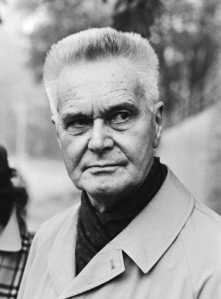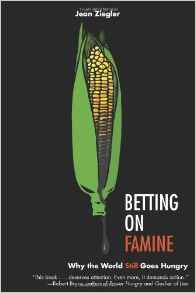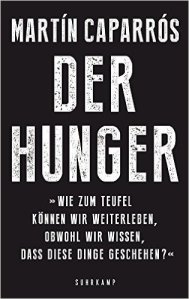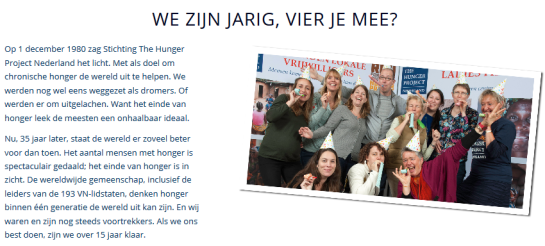This weblog is about World Hunger (too)
It is awkward to state the obvious, but let me do it anyway.
- This weblog advises to boycott Holland till the censorship of science since 1990 by the directorate of the Dutch Central Planning Bureau (CPB) has been lifted (see the About page)
- the censored analysis concerns unemployment and poverty
- resolution of unemployment and poverty is crucial for resolution of world hunger (unless you want to distribute food for free, which isn’t likely to happen)
- when I was a highschool student in 1972 and wanted to resolve world hunger, I decided that I better study econometrics rather than archeology
- when I studied econometrics I decided that unemployment was the key topic, since this affects the basic needs. At that time I also wrote an article (in Dutch) that the New International Economic Order (NIEO) was no basic needs programme. Jan Tinbergen read the article and responded on the phone that I very likely was right on this. There is some rumour in Holland that Tinbergen was an impractical dreamer who tragically pursued unattainables, but see my In Memoriam (in Dutch) for praise of his wisdom and common sense.
 Thus this weblog is of key importance for world hunger too. It is almost impossible to make a dent into world hunger when you don’t get the economies up and running, with systems of social welfare that are supportive of full employment.
Thus this weblog is of key importance for world hunger too. It is almost impossible to make a dent into world hunger when you don’t get the economies up and running, with systems of social welfare that are supportive of full employment.
Jean Ziegler has called attention to the issue in clear words, though he lacks the economic theory that has been hit by censorship by the Dutch CPB directorate. See this article “We let them starve” in The Guardian. I haven’t read his 2013 book but I am convinced that it is depressing reading, especially when you know that the solution is at hand, and blocked by censorship. It is depressing too, to read this report on Ziegler’s flirt with Gadaffi (and then check out the pictures of Gadaffi’s visit to Paris and president Sarkozy in 2007).
 Martin Caparros also takes issue at world hunger. See this article in the New York Times. See this interview at the University of Barcelona. Remarkably, there appears to be no English edition of his book yet, and the German edition of his book costs close to $100. Readers of German may also check out this article in Die Zeit.
Martin Caparros also takes issue at world hunger. See this article in the New York Times. See this interview at the University of Barcelona. Remarkably, there appears to be no English edition of his book yet, and the German edition of his book costs close to $100. Readers of German may also check out this article in Die Zeit.
There are various organisations worldwide that try to deal with world hunger. However, their approach is bottom up in the Third World, and not targetted at protecting science in the Western World and debunking fallacies by Western governments. They are fighting symptoms and not tackling the causes. Admittedly, someone who is hungry is helped immediately with food, and thus it is difficult to be critical of micro management. However, the leaderships of such organisations should be aware where the real solution would come from.
It is the same in Holland. The Dutch chapter of The Hunger Project interviewed Martin Caparros (in English). Let me quote two questions and answers:
You argue that hunger is the consequence of a system. Capitalism is the culprit. At the same time you say that of all the major problems, hunger is easily fixed. It seems too simplistic: changing the system is not simple, is it?
“That’s a problem. Because what would it mean to solve hunger? Make sure people take in more calories each day? That is easily done. It requires some technical changes, but you can realize those if you invest enough money on for instance roads or agricultural innovations. But the point I am making is that hunger is a metaphor for poverty. You cannot solve hunger if you do not first solve the problem of poverty. And that requires an overhaul of our system.”
How do we do that?
“Well, who knows? Until the 80s and 90s people thought equal welfare and justice could be reached with socialism or communism. By now we know better. I think politics should help us change to a moral economy.”
(Quoted from an interview of Martin Caparros by Leontine Aarnoudse, OneWorld, 2016-02-19)
Morality would help but, but the track record of morality shows its limits. People will be willing to help out, but the economic process must support this. Thus, there is my economic analysis, that however has been censored since 1990 by the directorate of the Dutch CPB.
Obviously, when these Dutch organisations like The Hunger Project do not question the censorship of science by the directorate of the Dutch CPB, then they convey an image as if there would be freedom of thought in Holland, and that the problem indeed cannot be solved except by micro management and global morality. What can one do, to make these blind and deaf Dutch people grow aware of their blindness and deafness ?
I collaborated on a book in Dutch that discussed unemployment and poverty. When Holland has such difficulty to manage its own unemployment and poverty (with its level of education and technology and natural gas resources) then one should be modest about claims for the Third World, unless more can be said along the lines of this censored economic analysis. Not all is in this booklet yet, since there is this censorship. Economic scientists should look at DRGTPE. I did not yet collaborate on a book on world hunger. Is that the reason why the coin does not drop ?
Addendum
The Hunger Project Nederland apparently was founded in 1980, and they “celebrated” the 35th anniversary in 2015. I find this difficult to square, for how can you celebrate continuation of something that should have ended in 1981 ? The official text reads that they celebrate the progress towards elimination of world hunger, with a new target for “in the next generation”, but this reads as an official excuse. The subject is a minefield, with this “celebration”, Ziegler & Gadaffi, and other such issues. I suppose that it is quite acceptable to have parties, for man is not only an animal but also a party animal, but please avoid the cognitive dissonance created here.



